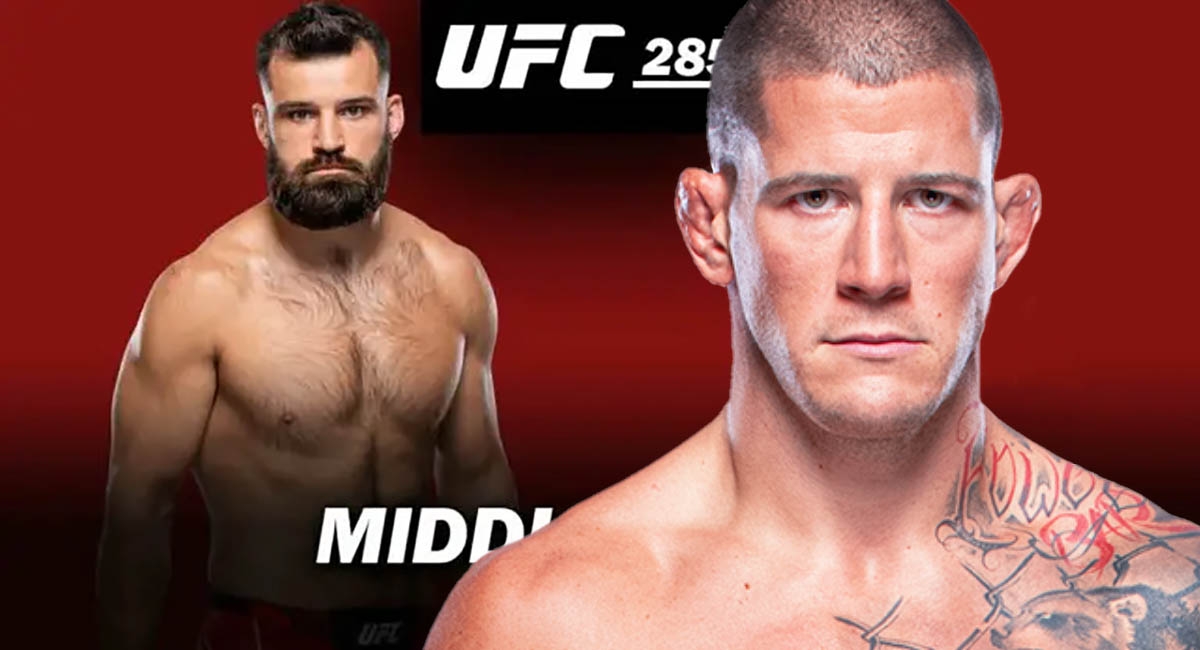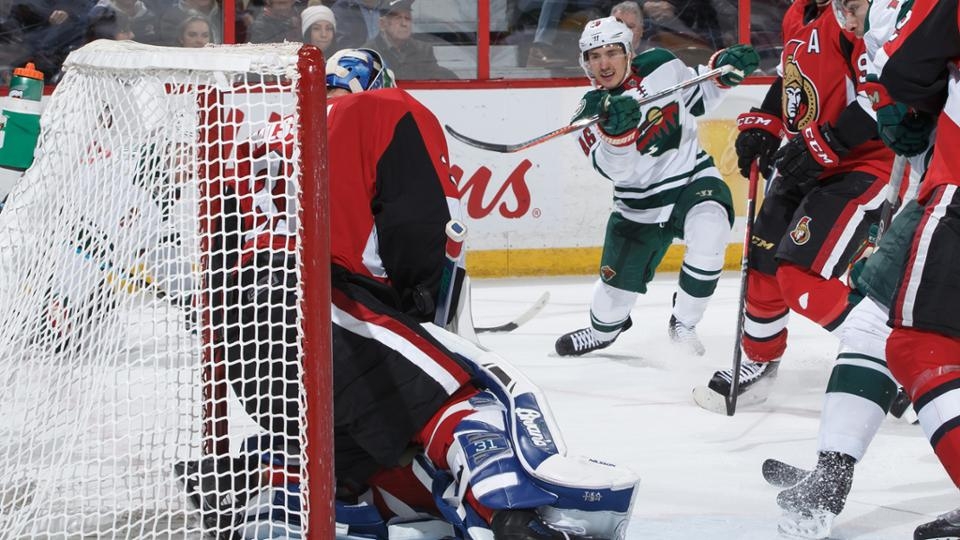
Chasing Calder: The Binghamton Senators Playoff Run
UPDATE (Wed, May 25): The Houston Aeros defeated the Hamilton Bulldogs 4-3 in Game 7 of the Western Conference final. They will face Binghamton in the Calder Cup final. Game 1 is Friday night in Houston.
Down three games to one in their opening-round series of the AHL Playoffs to the Manchester Monarchs, things looked dire for the Binghamton Senators. Having managed to split the first two games of the series, which were played in Manchester, they lost their first two home games of the postseason to open up a seemingly insurmountable deficit. Goaltender Barry Brust, a career AHLer and a favourite of Binghamton fans, had allowed 16 goals in four games, including 11 in the two home defeats alone. For a club that only secured a playoff berth in the final days of the regular season (with several key skaters playing out the stretch in Ottawa), it figured to be a forgetful anticlimax to a promising year.
Just over a month later, Binghamton has clinched their spot in the Calder Cup Final, having lost just two games since falling behind in the Manchester series. Teenage prodigy Robin Lehner, who replaced Brust as the starting netminder in Game 5 of the first round, has been dominant in shutting down not only the Monarchs, but also the B-Sens’ next two opponents, the Portland Pirates and the Charlotte Checkers. Binghamton boasts six of the top 11 playoff scorers in the league, including three of the top five. They’ve gotten significant contributions from both their young prospects and their seasoned veterans, winning five overtime games and posting an 8-1 record away from home. As Binghamton awaits the winner of the Western Conference final between the Hamilton Bulldogs and Houston Aeros, here’s a primer on the B-Sens’ playoff run: who they are, and how they got here.
***
HOW THEY GOT HERE…
Round 1 vs. Manchester Monarchs: Binghamton wins 4-3
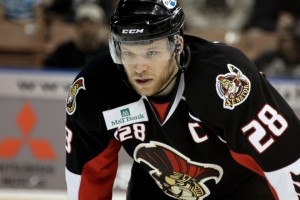
By virtue of finishing fifth in the AHL’s East Division, with a better record than the third and fourth-place teams in the Atlantic Division, Binghamton crossed over to take on the Atlantic’s runner up, Manchester (the Los Angeles Kings’ minor league affiliate). Led by a crop of youngsters on the precipice of the Kings’ roster, including Bud Holloway, Justin Azevedo and Vyacheslav Voynov, Manchester was bolstered by the additions of prized junior prospects Brayden Schenn and the Ottawa 67s’ Tyler Toffoli, following their eliminations from the CHL playoffs.
Binghamton earned a split on the road in the first two games, dropping Game 1 by a score of 2-1, but rebounding to take Game 2 in overtime, 4-3. Brust promptly fell apart as the series returned to Binghamton, surrendering 11 goals in two games as the B-Sens fell behind three games to one.
With an elimination game looming, first-year head coach Kurt Kleinendorst made the decision to start the 19-year old Lehner in net. The move paid dividends immediately – Lehner was competent in a 5-4 overtime win in Game 5, then put forth the best performance of his young career in Game 6, stopping 51 shots as Binghamton won 2-1 in double overtime.
The B-Sens jumped out to a 3-0 lead in Game 7, only to fall behind 5-4 midway through the third period. Erik Condra rescued Binghamton with the tying goal with less than two minutes remaining, setting the stage for trade deadline acquisition Ryan Potulny to score the overtime winner, his eighth goal and 14th point of the series. Binghamton became the first team in AHL history to win four games in a series after regulation.
Round 2 vs. Portland Pirates: Binghamton wins 4-2
Having knocked off Manchester, Binghamton moved on to face the Portland Pirates, the Atlantic Division champs and the farm club of the Buffalo Sabres. Led by minor league veteran Mark Mancari, another ex-Ottawa 67, as well as AHL Rookie of the Year Luke Adam, Portland had hoped to receive several reinforcements in the wake of Buffalo’s elimination from the NHL postseason. While Sabres backup Jhonas Enroth did return in time for the second round, standout defenseman Marc-Andre Gragnani, a late-season NHL call-up, went overseas to play for Team Canada at the World Championships, leaving the Pirates with little offensive spark on the back end.
With Lehner now entrenched as the go-to goaltender, Binghamton managed to scrape together two consecutive road victories, taking Game 1 by a score of 3-2, with David Leggio tending goal for Portland, and Game 2 by a score of 5-3, with Enroth getting the start. Hoping to close out the series on home ice, the B-Sens lost two of the next three games, as Lehner struggled mightily in a 6-2 defeat in Game 5, being pulled in the first period in favour of Brust. Despite the loss, Lehner returned to the crease in Game 6; once again, he was magnificent, posting a 36-save shutout as Binghamton clinched the series with a 3-0 victory.
Round 3 vs. Charlotte Checkers: Binghamton wins 4-0
In the Eastern Conference final, Binghamton faced a club that had actually fared worse in the regular season than its previous two opponents: the Charlotte Checkers, the Carolina Hurricanes’ affiliate, who knocked off the vaunted Wilkes-Barre/Scranton Penguins in Round 2. Led by a trio of electrifying 20-year old forwards (Zach Boychuk, Zac Dalpe and Chris Terry), the Checkers also started a goaltender fresh out of junior hockey, 21-year old Mike Murphy.
From a defensive standpoint, neither team was pleased with the events of Game 1 – both goalies were pulled by midway through the second period, with Barry Brust eventually calming the ship in relief, as Binghamton pulled out a 7-4 slugfest. Pulled for the second time in the playoffs, Lehner again responded with a shutout performance, making 35 saves in a 3-0 win, as the B-Sens earned their eighth consecutive road victory and took a 2-0 series lead.
Needing to win two of the next three games on home ice to reach the final, Binghamton took no chances, demolishing Charlotte 7-1 in Game 3, knocking Murphy from the net for the second time in the series. Game 4 was, predictably, tighter, as the Checkers held on for the playoff lives, scoring with under two minutes remaining in the third period to tie the game at 3 and force overtime. Thirteen minutes into the extra frame, captain Ryan Keller wired a slapper past Murphy, sending Binghamton to its first ever Calder Cup final.
***
WHO THEY ARE…
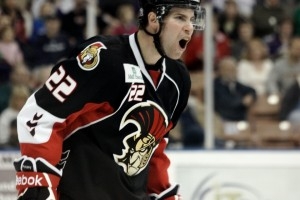
Forward Line 1: Zack Smith – Ryan Potulny – Ryan Keller
Boasting three of the top seven scorers in the league, they have been the top line of the AHL playoffs – and it hasn’t been close. Potulny, acquired by Bryan Murray at the trade deadline for Chris Campoli, has been absolutely unconscious during the postseason, tallying 14 points in the first round against Manchester, and 25 in total (14 goals-11 assists), to lead the league in scoring. Keller, the 27-year old captain, is right behind his centre at 22 points (8-14); his overtime winner in Game 4 against Charlotte managed to combine the best qualities of the two most important goals in Ottawa Senators history: Joe Corvo’s Game 2 goal against Buffalo in 2007 (a slapper from the point right off the faceoff in overtime), and Daniel Alfredsson’s Game 5 goal against Buffalo in 2007 (the captain scoring the overtime winner to send his team to their first ever final). Smith, one of the reinforcements sent down from Ottawa, ranks seventh in the league with 17 points (6-11). The combination of youthful enthusiasm and minor league experience has allowed this trio to terrorize opposing goaltenders and score several clutch goals en route to the finals.
Forward Line 2: Colin Greening – Corey Locke – Bobby Butler
A recreation of Ottawa’s late-season top forward unit, with Locke, this year’s AHL MVP, the centre in place of Jason Spezza (the AHL MVP in 2004-05). After missing the entire Manchester series due to injury, Locke has played at a point-per-game pace since his return, notching 10 points (1-9) in 10 games. The majority of his assists have been to Butler, whose role as the triggerman has allowed him to score 10 goals during the postseason (he also has 3 assists). Greening has been surprisingly anemic offensively (just 1 goal and 2 assists), but his play along the boards and in the defensive zone has been crucial in allowing his linemates to explode offensively. He may also be due for a breakout series in the final round – he’s taken 46 shots for a shooting percentage of 2.2%, while Butler’s 10 goals have come on 47 shots (21.3%).
Forward Line 3: Kaspars Daugavins – Jim O’Brien – Erik Condra
The lone member of his line to not spend time in Ottawa this season, Daugavins has emerged as the club’s emotional leader and top scorer outside of the first line. With 10 goals on 36 shots, the Latvian winger has registered an absurd 27.8% shooting percentage; a restricted free agent, he’s making a case for an NHL call-up next season. Condra, filling the same checking-line winger role he did during his stint in Ottawa, has helped generate offense through his 13 points (4-9), while O’Brien, despite not scoring at the same torrid pace of his linemates (2-3), is providing a responsible defensive presence and solid numbers in the faceoff circle.
Forward Line 4: Mike Hoffman – Cody Bass – Roman Wick
It’s a testament to Binghamton’s considerable forward depth that Wick, who played seven games in Ottawa this year, is stuck on the fourth line. He’s provided offense even in his limited amount of ice time, scoring eight points in 17 games (3-5). One key to the B-Sens’ playoff run has been the emergence of Hoffman, a fifth-round pick in 2009 that has tallied nine points in 13 games (1-8), despite playing less than almost every other forward on the team. Bass has filled the fourth-line centre spot admirably for the entire season; his calming influence and relentless energy have been invaluable in supporting not only his linemates, but the entire team.
David Dziurzynski has played 12 games during the playoffs, registering two assists. He’ll be the first injury replacement for the forwards. ECHLer David Sloane has also appeared in six games, scoring no points.
Defensive Pairing 1: Andre Benoit – Jared Cowen
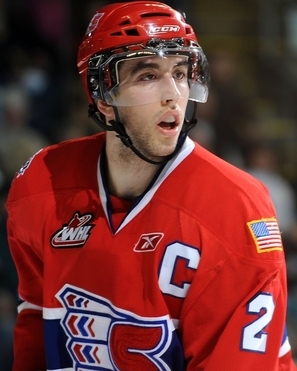
With a blueline absolutely ravaged by injuries, Benoit is one of two Binghamton defensemen to have appeared in every playoff game. He’s also leading all defensemen in playoff scoring, registering 14 points (3-11), good for fifth overall on the B-Sens and tenth in the league. Cowen, who joined the club after the Spokane Chiefs were eliminated from the WHL playoffs, has been lights out at both ends of the rink, dominating his older opponents with his physical play, and racking up four assists in his first five AHL playoff games. Already the biggest player on the team at 19, Cowen has added an edge to Binghamton’s defensive corps that’s allowed them to thrive despite missing several key members. Bryan Murray has said several times in the past week that he’s not sure how the B-Sens won any games without Cowen – in just five professional games, he might have become Binghamton’s best defenseman.
Defensive Pairing 2: Geoff Kinrade – Patrick Wiercioch
Besides Benoit, Kinrade is the only B-Sens defenseman to dress in all 17 playoff games so far. A college signee of the Tampa Bay Lightning in 2008, Kinrade has missed just six games in two full seasons with Binghamton. His heroic performance alongside Benoit, Wiercioch, Mark Borowiecki and Craig Schira late in the Manchester series, when they were the only defensemen available to play, has entrenched him as one of the unsung heroes of this Binghamton squad. Wiercioch, meanwhile, sat out a few games against Portland and Charlotte due to injury, but should be at full strength for the start of the final round. He hasn’t provided the same measure of offensive spark that he did in the regular season (just one assist in 13 games), but his defensive play has been capable.
Defensive Pairing 3: Mark Borowiecki – Eric Gryba
Gryba was an unyielding physical presence all season on the back end for Binghamton, and should spend time in Ottawa next year if injuries arise. He’s played just four playoff games so far due to injury, all of them against Charlotte. Borowiecki, a Kanata product that was signed in March out of Clarkson University, appeared in just nine regular season games for Binghamton; he’s already played 15 in the playoffs, assisting on two goals and providing competent defense on the third pairing.
Craig Schira played all seven games against Manchester, but hasn’t dressed since; there’s the possibility that he’ll be available for Game 1 of the finals. Binghamton is currently missing veterans Derek Smith, Derek Grant and David Hale, none of whom are likely to play again this year. Bob Raymond, Patrick Coulombe and Brennan Turner have all made brief appearances in the postseason.
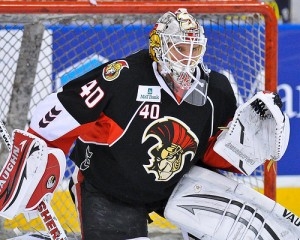
Goaltenders: Robin Lehner, Barry Brust
Lehner’s season: play just 30 professional games (22 with Binghamton, 8 with Ottawa); take over the starting role down 3-1 in a playoff series; win three straight elimination games in overtime; lead his team to two more convincing series wins; rebound from being pulled by posting a shutout on two separate occasions; outperform goalies more established at both the AHL and NHL levels, while defeating three higher-seeded teams en route to the Calder Cup final. His numbers aren’t near the top of the league (2.41 GAA and .932 SV%), but for a 19-year old goaltender that could have spent his entire season playing against juniors in Sault Ste. Marie, they’re pretty damn good.
Brust, meanwhile, has kept his chin up despite losing his job to Lehner just four games into the playoffs. He’s relieved his teenaged counterpart twice, managing to stop the bleeding and secure a victory for Binghamton in Game 1 against Charlotte. Remember – Brust is the main reason that the B-Sens even crawled into the playoffs in the first place, with his standout performance during the regular season. He may bolt to Europe or to another AHL club next season, but no matter what happens in the next round, his contributions to Binghamton won’t be forgotten.
***
To summarize, Binghamton has the best scoring depth in the AHL – led by the steady hands of several minor league veterans (Potulny, Keller, Locke, Bass), they’re complemented by a multitude of intriguing prospects, some who played key roles this season in Ottawa (Butler, Greening, Smith, Condra), and some who helped ensure that Binghamton received a playoff bid in the first place (Daugavins, O’Brien, Wick, Hoffman).They have a dogged group of defensemen that survived playing 30-plus minutes a game to start the postseason (Benoit, Kinrade, Schira, Borowiecki), as well as a couple key blueliners recovered from injury (Wiercioch, Gryba) – not to mention the youngster that may be the best of them all (Cowen). Their 19-year old goaltender stepped into the most pressure-packed situation imaginable in professional sports and has carried his team to several crucial victories (Lehner); in the off-chance that he stumbles, the team can turn to its regular-season starter, the man that dragged a depleted, ragtag collection of players to the playoffs in the first place (Brust).
They’re led by Kurt Kleinendorst, a respected hockey lifer that toiled for many years as a player, then as a coach in the minor leagues, waiting for a chance to lead a team to a championship. They have the most devoted crowd in the entire AHL behind them (not easily quantifiable, but just check the YouTube clips), not to mention an almost spotless record away from their home arena. They have the entire city of Ottawa supporting them, fuelled by the memory of their hometown team’s past playoff failures. The Binghamton Senators have a chance to do something that seemed impossible just over a month ago – bring hope in a lost season for the Senators franchise. They’re four wins away from Calder.


